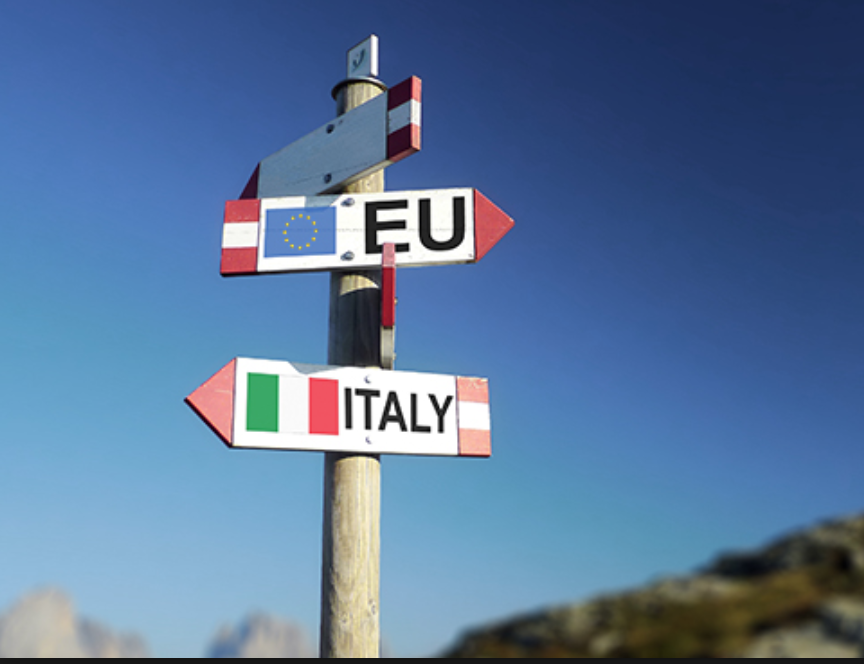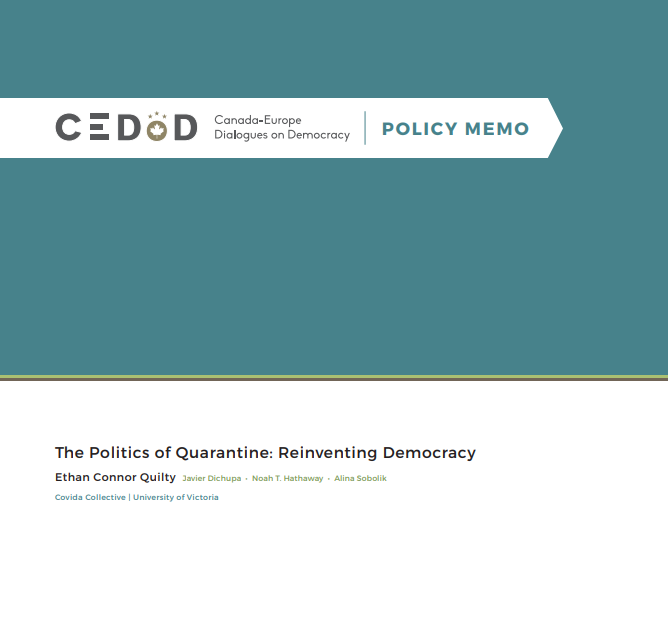Italy’s Populist-Nationalist Coalition Government: On Collision Course with the European Union, by Oliver Schmidtke
By Oliver Schmidtke, Centre for Global Studies at the University of Victoria
In one way the uncertainty in Italian politics is about to come to an end: More than two months after the elections, Italy’s anti-establishment Five Star Movement (M5S) and the far-right League (Lega) have presented their government program and their choice for the country’s incoming premier. Yet, at the same time, the promise of the two anti-establishment parties to launch a “revolution” has left Italians and the international community with a great degree of uncertainty regarding the future political course of the country.
The proposed program of Italy’s prospective coalition government puts forward a blend of neoliberal policies and nationalist, protectionist measures that reflects the political priorities of the two political parties. The proposal for a 15% flat tax displays the pro-market, anti-state stand of the League with its strong support in particular among the business community in Northern Italy. In contrast, the pitch for a monthly basic income of 780 euros was a key demand of the M5S during the electoral campaign and its attempt to shore up support in the less developed south. In addition, the program for the new government lists the reversal of a recent pension reform as well as the reduction of retirement age.
The implementation of these reforms will be costly and it will bring Italy on a collision course with the European Union. Living up to the expectations nurtured by the anti-EU rhetoric of their electoral campaigns, the M5S and the League have stated that the EU budget will have to conform to the goals of Italy’s interests and not the other way around. There is little doubt that the economic policies of the government will challenge the EU’s strict rules about the limits of public debt, not to mention Macron’s ambitious goals for an EU social and economic policy. The French Finance Minister Bruno Le Maire has already predicted: “The new coalition could put the entire eurozone in danger”. At the same time, the coalition has toned down its EU scepticism and declared that it won’t launch a referendum on whether Italy should pull out of the euro or the EU altogether.
On Monday, the prospective government announced that it will be led by a low-profile professor of law at the University of Florence, Giuseppe Conte, who is without any prior experience in politics or government. If approved by the president, Conte would provide a moderate face – he is pro-European and ideologically distant to the aggressive nationalism of the Lega – to a coalition whose respective leaders will push for their controversial political projects. And there is a certain irony to the fact that during the electoral campaign both parties have vigorously refused the idea of having a technocrat running the country who is not chosen by the people at the ballot box.
In all likelihood Luigi Di Maio, leader of the Five Star Movement, will head the newly created “super ministry” for work and growth and oversee the reform agenda in terms of social and economic policies. Matteo Salvini, leader of the Lega, is likely to be appointed Interior Ministry and responsible for Italy’s immigration and asylum policies. With his anti-immigrant statements and ‘Italy First‘ slogan, Salvini has left no doubt how he intends to address in particular the challenge of refugees. As part of a larger anti-immigrant agenda he has promised to end the EU’s asylum policy, create detention centres across the country, and deport 500,000 irregular migrants.
The likely scenario for the next government will be that of a figurehead premier Conte who will interpret and manage the expectation of the two parties’ leaders and their respective anti-establishment agenda. The common denominator of this coalition government will be the announced fight against state bureaucracy, corruption, and the old establishment. What both populist parties also share is the deep mistrust in or dislike of Brussels. There is surely a storm brewing for the EU.
About the author: Oliver Schmidtke is Director of the Centre for Global Studies (CFGS) and Jean Monnet Chair in European Politics and History at the University of Victoria. Dr. Schmidtke, a former director of European Studies and president of the European Community Studies Association in Canada (ECSA-C), holds appointments in the departments of Political Science and History. Currently his research focuses on issues of democracy, populism, memory politics, the labour market inclusion of highly skilled immigrants as well as processes of political advocacy of migrant and minority groups.









